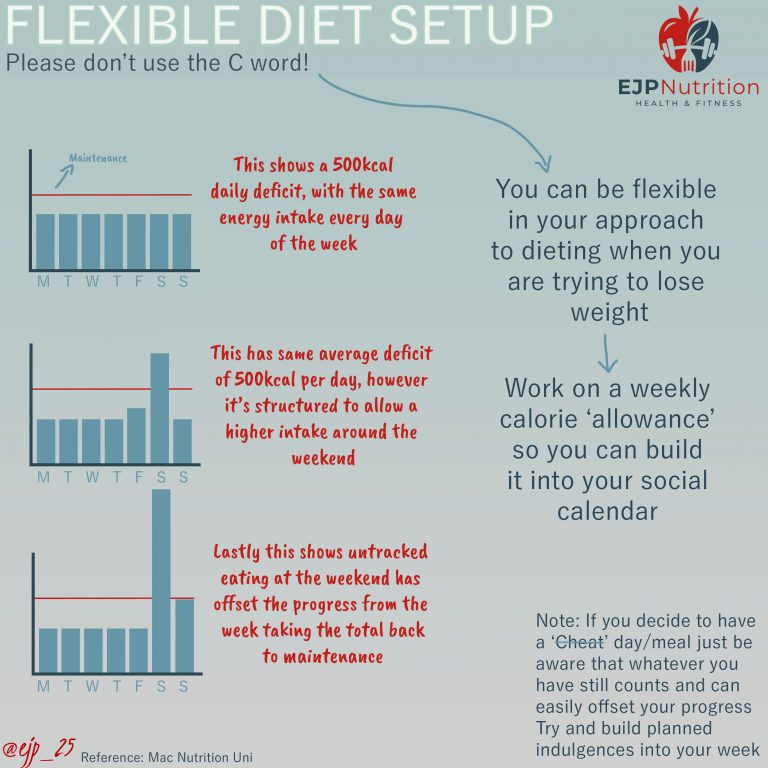Flexible Dieting
We need to stop with the “Cheat” label. When trying to lose weight having a ‘cheat meal’ after you’ve been overly restrictive can easily lead to a ‘cheat day’, which in turn becomes an entire weekend of overeating. This cancels out any progress made through the week. You then start the next week and “punish” yourself by over-restricting, only to binge at the weekend. Spot the pattern?
The only way to lose weight is by being in an energy deficit. You can be flexible across your week in how you create that. When trying to lose weight work your allowance around your social life. If dieting is negatively effecting that then it’s maybe time to reassess whether you need a break.
People with dichotomous thinking (black and white/good and bad) around food are shown to be more likely to have recurring binges**. Having a more flexible approach, rather than rigid rules followed by blow-out ‘fuck-it’ days will not only help keep a better relationship with food, it will also help you make more consistent progress.
Slow & Steady
Another point to keep in mind is being in a smaller deficit (yes, with a slower rate of weight loss) from a plan you can actually ADHERE to will get better long term results*. A high deficit which you can’t stick with is highly likely to put you into that yo-yo binge restrict cycle.
The graphic shows examples of calorie spreads over a week. The top two have maintenance of 2000kcal a day (the red line) – 14000 per week. A deficit of 3500 equates to roughly 0.45kg (1lb) a week. The first chart has an even intake with a 500kcal deficit every day of the week. The second has a slightly lower weekday intake with the flexible diet setup to allow a larger intake on Saturday.
Remember a calorie deficit is the principle behind fat loss. You need to find a method which works for you. There is no one-diet fits all. Find the one which you can adhere to and suits your lifestyle and food preferences.
Need any help setting up your diet strategy? Get in touch for guidance.
References: Mac-Nutrition Uni, *Frost et al. 1991, **Linardon et al 2019
(Reposted from Instagram)


